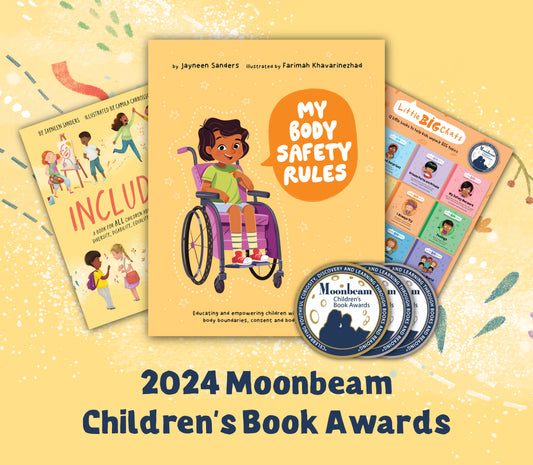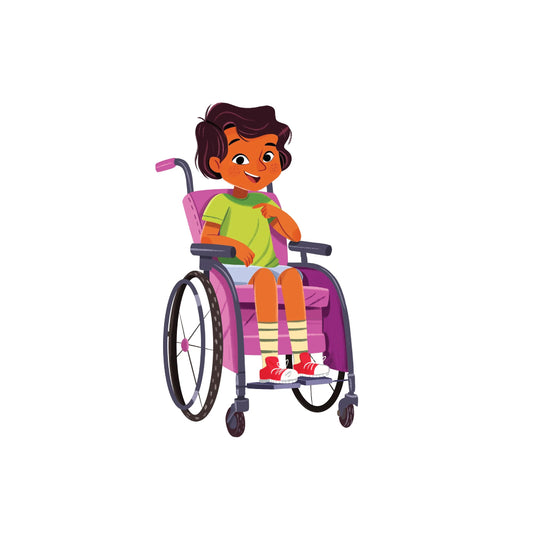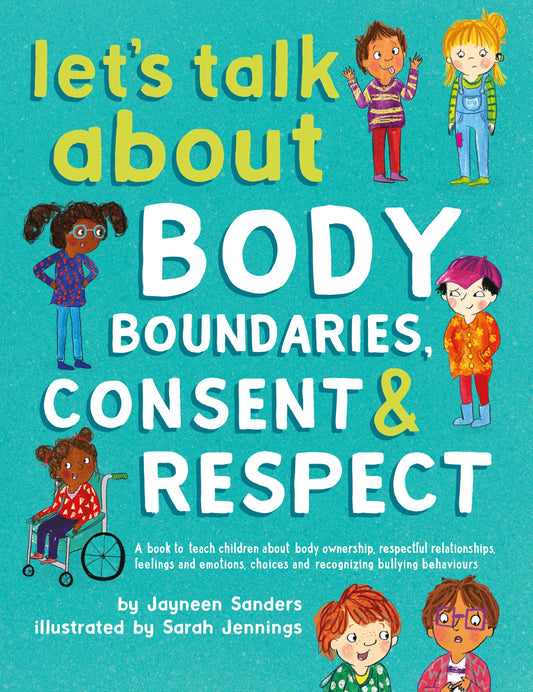
EmpowED
Welcome to EmpowEd, our blog where we share advice and resources to help empower children through education around Body Safety, Consent, Social & Emotional Intelligence, Gender Equality, Diversity and Inclusion.

Light Over Darkness
A Message from Author Jayneen Sanders following the Bondi Terror Attack Hanukkah, in the Jewish tradition, means light over darkness, faith and resilience. And, as in so many religious traditions that we also celebrate here in our wonderful multicultural Australia, light over darkness is the universal theme of ‘good triumphing over evil, truth over falsehood, knowledge over ignorance, and hope overcoming despair’. So, after the devastating shooting of innocent people celebrating Hanukkah on Bondi Beach, the most iconic beach in Australia, we look to those words when we help our young people and ourselves process and overcome our sadness and...
Light Over Darkness
A Message from Author Jayneen Sanders following the Bondi Terror Attack Hanukkah, in the Jewish tradition, means light over darkness, faith and resilience. And, as in so many religious traditions that we also celebrate here in our wonderful multicultural Australia, light over darkness is the universal theme of ‘good triumphing...

GOLD and SILVER in the 2024 Moonbeam Children's Books Awards
We are thrilled to announce that three of our titles have been recognized with top honours at the 2024 Moonbeam Children’s Book Awards! This prestigious award celebrates excellence in children’s books, and we are beyond proud to see our work acknowledged among the best in the industry. We strive to empower children through our books, and these awards affirm the impact our books are having on young readers and their communities. Gold Winner in Health Issues: My Body Safety Rules Buy Book Winning the Gold Medal in the Health Issues category, My Body Safety Rules is a book that...
GOLD and SILVER in the 2024 Moonbeam Children's Books Awards
We are thrilled to announce that three of our titles have been recognized with top honours at the 2024 Moonbeam Children’s Book Awards! This prestigious award celebrates excellence in children’s books, and we are beyond proud to see our work acknowledged among the best in the industry. We strive to...

7 Body Safety Rules: Written Specifically For Kids With Disability
Rule 1: Asking for Consent Ensure all people who interact with your child ask for their consent before entering their body boundary. Ensure you child knows that a body boundary is the invisible space around their body (and wheelchair). It is their personal space — a space just for them. Discuss what consent means with your child: it means asking them if something is okay or not okay. It means asking for permission. If your child is non-verbal work out ways they can indicate ‘yes’ or ‘no’ when people ask for their consent. Rule 2: Checking In And even...
7 Body Safety Rules: Written Specifically For Kids With Disability
Rule 1: Asking for Consent Ensure all people who interact with your child ask for their consent before entering their body boundary. Ensure you child knows that a body boundary is the invisible space around their body (and wheelchair). It is their personal space — a space just for them....

15 Key Communication Skills for Students
The following communication skills may be helpful for students when discussing or debating ideas in a group situation. Let everyone have a turn at speaking. 1. Allow everyone in the group a chance to speak and acknowledge what they said respectfully, e.g. “I hear and understand what you said and I agree/disagree. I think … because …” Don’t make fun or discount another person’s ideas. 2. Speak about ideas and not about a person/s. Listen to others when it’s their turn. Listening to other’s ideas is how we learn. 3. Do not dominate the conversation; allow each person a...
15 Key Communication Skills for Students
The following communication skills may be helpful for students when discussing or debating ideas in a group situation. Let everyone have a turn at speaking. 1. Allow everyone in the group a chance to speak and acknowledge what they said respectfully, e.g. “I hear and understand what you said...

#NoMore #MeToo for the Next Generation
I say #NoMore #MeToo for the next generation. We can stop this! As active and engaged parents, caregivers, educators and health professionals we can help stop sexual assault, so our kids will grow into adulthood free from sexploitation, misogyny, gender inequality and sexual assault. How do we do this? We EDUCATE our kids — the next generation — from the day they are born. Kids need to know: 1. that they have rights, a voice and body autonomy 2. that they have choices 3. what consent means in regards to giving it, asking for it and withdrawing consent at anytime...
#NoMore #MeToo for the Next Generation
I say #NoMore #MeToo for the next generation. We can stop this! As active and engaged parents, caregivers, educators and health professionals we can help stop sexual assault, so our kids will grow into adulthood free from sexploitation, misogyny, gender inequality and sexual assault. How do we do this? We...